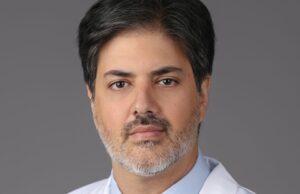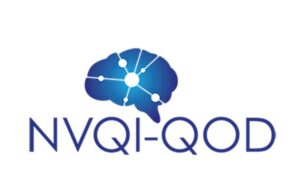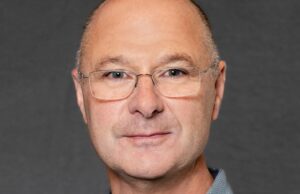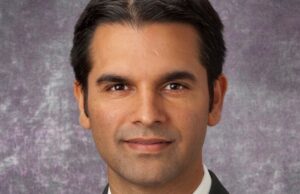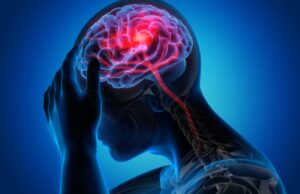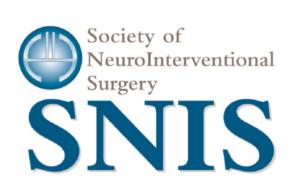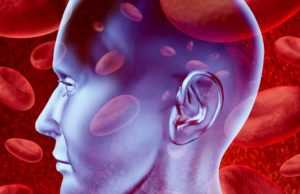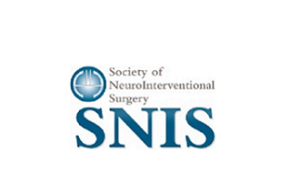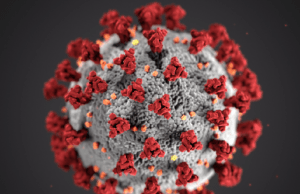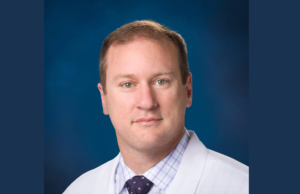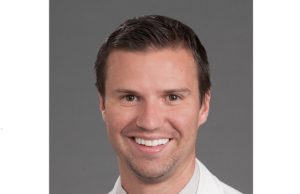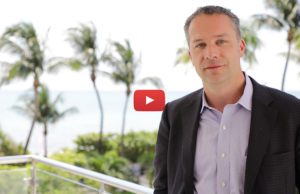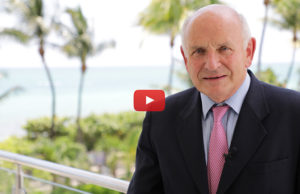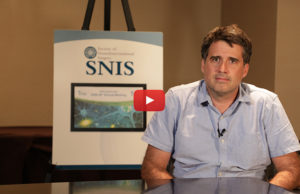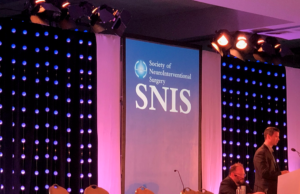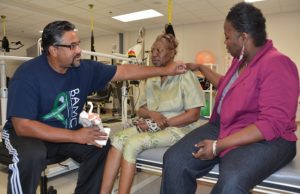Tag: SNIS
Guilherme Dabus named 2025–2026 president for Society of NeuroInterventional Society
Guilherme Dabus—an interventional neuroradiologist at the Baptist Health Miami Neuroscience Institute in Miami, USA—has been named the 2025–2026 president of the Society of NeuroInterventional Surgery...
Johanna Fifi
Following in the footsteps of many of her neurointerventional mentors as president of the Society of NeuroInterventional Surgery (SNIS), Johanna Fifi (New York, USA)...
NVQI Quality Outcomes Database celebrates 25,000-procedure milestone
The Society of NeuroInterventional Surgery’s (SNIS) Patient Safety Organization (PSO)—in partnership with the NeuroPoint Alliance (NPA)—has announced that the NeuroVascular Quality Initiative Quality Outcomes...
Patient empathy and avoiding the trap of depersonalisation
In a guest piece for NeuroNews, Blaise Baxter (San Francisco, USA) discusses empathy and compassion in the working life of a neurointerventionist, and highlights...
Johanna T Fifi named president for Society of NeuroInterventional Surgery
Johanna T Fifi, an interventional neurologist at Mount Sinai Hospital (New York, USA), has been named the 2024–2025 president of the Society of NeuroInterventional...
Stroke transfer protocols: what does the road ahead look like?
A number of somewhat conflicting studies have been published over the past year regarding triage and transport protocols for stroke. In light of the...
SNIS acknowledges “major shift” in chronic SDH treatment following new trial...
In an official statement, the Society of Neurolnterventional Surgery (SNIS) has acknowledged middle meningeal artery (MMA) embolisation as a beneficial adjunctive treatment for chronic...
US neurointerventionists argue recent data “affirm” benefits of direct stroke triage
In an editor's column published recently in the Journal of NeuroInterventional Surgery (JNIS), leading members of the Society of NeuroInterventional Surgery (SNIS) have argued that the entire body...
Physicians highlight that “stroke strikes at any age” ahead of World...
Ahead of World Stroke Day 2023, on 29 October, physicians from the Get Ahead of Stroke campaign are highlighting the fact that, while prevalence...
Mahesh Jayaraman becomes 28th president of the Society of NeuroInterventional Surgery
Mahesh Jayaraman, an interventional neuroradiologist at Rhode Island Hospital in Providence, USA—who has led national efforts to improve stroke systems of care in the...
Massachusetts’ stroke triage updates will save lives and reduce disability, says...
Massachusetts patients experiencing stroke could soon have access to refined treatment, triage and transport protocols based on a provision in the US state’s new...
J Mocco
As president of the Society of NeuroInterventional Surgery (SNIS), endovascular neurosurgeon J Mocco (Icahn School of Medicine at Mount Sinai, New York, USA) has...
Get Ahead of Stroke campaign launches Survive Stroke Week from 15–21...
The Get Ahead of Stroke campaign is launching Survive Stroke Week from 15–21 May—an observance aimed at increasing awareness of stroke symptoms and the...
Female physicians in neurointerventional surgery: Breaking down barriers
In the latter stages of 2022, the Society of NeuroInterventional Surgery (SNIS) released a position statement advocating pregnancy and parental leave policies in neurointerventional...
Get Ahead of Stroke campaign debuts new online resources for EMS...
With Brain Awareness Week (13–19 March) approaching, the Get Ahead of Stroke campaign has announced it is debuting new online resources for emergency medical...
SNIS: Physicians “should not have to choose” between family life and...
The Society of NeuroInterventional Surgery (SNIS) has released a position statement advocating pregnancy and parental leave policies in neurointerventional surgery, also voicing support for...
BE FAST: Physicians advocate greater public awareness on World Stroke Day
On World Stroke Day 2022 (29 October), US physicians from the Get Ahead of Stroke campaign are urging the public to embrace the “simple...
J Mocco becomes 27th Society of NeuroInterventional Surgery president
J Mocco, an endovascular neurosurgeon at Mount Sinai in New York City, USA has been named the 2022 president of the Society of NeuroInterventional...
Michael Chen
Michael Chen—a neurointerventionist and professor of Neurology, Neurosurgery and Radiology at Rush University Medical Center in Chicago, USA—speaks to NeuroNews to provide insight on...
Reducing disability and death: What is next for stroke triage and...
Michael Chen (Rush University Medical Center, Chicago, USA) discusses the growing awareness around the need for timely interventions in stroke care in the USA,...
World Stroke Day 2021: Get Ahead of Stroke campaign pushes for...
On World Stroke Day—29 October 2021—physicians from the Get Ahead of Stroke campaign are urging lawmakers to update triage and transport protocols. They are...
North Carolina updates stroke triage and transport protocol
North Carolina has updated its emergency stroke care protocol—a move applauded by the Get Ahead of Stroke campaign. The protocol, which went into effect...
Brain-computer interface technology opens up “whole new world” of therapies
“We are starting to help patients in ways that we did not think were possible,” Thomas Oxley (Mount Sinai Hospital, New York, USA) tells...
Michael Chen becomes 26th president of SNIS
Michael Chen, a neurointerventionist at Rush University Medical Center in Chicago, USA, has been named the president of the Society of NeuroInterventional Surgery (SNIS)...
Race among factors that predict how quickly patients get to stroke...
Race, in combination with other factors, predicted how quickly individuals with stroke got to care centres to receive necessary neuroendovascular surgery, including thrombectomy, according...
Cerenovus to unveil new data and showcase stroke care innovations at...
Cerenovus, a neurovascular firm that forms part of The Johnson & Johnson Medical Devices Companies, will showcase its latest innovations in stroke care at...
William Mack becomes 25th SNIS president
The Society of NeuroInterventional Surgery (SNIS) has announced that William Mack (Los Angeles, USA) has become the new president of the organisation. The announcement...
LIVE from SNIS: 51% of neurointerventional non-physician staff report burnout
A survey of US neurointerventional non-physician procedural staff demonstrates a self-reported burnout prevalence of 51%. According to Patrick Brown of Wake Forest Baptist University...
LIVE from SNIS: Treatment advancements have reduced mortality rates from unruptured...
Mortality rates after treatment of unruptured intracranial aneurysms have substantially decreased in the past decade, according to new findings presented at the Society of...
Telemedicine in neurointervention set to last beyond the hype
“Telehealth is finally upon us. As someone who has been practicing in this world for several years, I was always waiting for an inflection...
COVID-19: Lessons learnt from Italy, China and the USA
A webinar hosted by the Society of NeuroInterventional Surgery (SNIS) on 2 April brought together neurointerventionalists and endovascular neurosurgeons from Italy, China, and the...
SNIS releases recommendations for emergent neurointerventional patients during COVID-19
The Society of NeuroInterventional Surgery (SNIS) has published a set of recommendations for the care of emergent neurointerventional patients during the COVID-19 pandemic.
“Acute...
Three-year outcomes of the Surpass system confirm its safety and efficacy
Three-year outcomes of the Surpass intracranial aneurysm embolisation system pivotal trial to treat large or giant wide neck aneurysm (SCENT trial) confirm the safety...
The burden of a stroke call: 56% of US neurointerventionalists meet...
Fifty-six per cent of US neurointerventionalists meet criteria for burnout. This statistic, presented by Kyle Fargen from Wake Forest Baptist Health in Winston-Salem (USA)...
Flow diverter outcomes are “not device, but technique dependent”
Patrick Brouwer (Stockholm, Sweden) talks to BLearning at SNIS 2019 (22–25 July, Miami, USA) about some of the issues associated with early flow diverters and why there...
SNIS 2019: Next-generation thrombectomy will be “even more powerful”
Matthew Gounis (Worcester, USA) talks to BLearning at SNIS 2019 (22–25 July, Miami, USA) about the current state of ischaemic stroke therapy. Gounis notes that...
SNIS 2019: Large scale endovascular treatment has improved outcomes for patients...
Andrew Molyneux (Oxford, UK) spoke to BLearning following his luminary lecture at SNIS 2019 (22–25 July, Miami, USA) titled, "Reflections on 30 years of cerebral...
SNIS 2019: In select patients, conventional imaging is “unnecessary” and they...
Marc Ribo (Barcelona, Spain) talks to BLearning at SNIS 2019 (22—25 July, Miami, USA) about the benefits of optimising time to thrombectomy by cutting out...
A stroke trial update from SNIS 2019
From tPA augmentation and stroke systems of care through to the rise of neuroprotective investigations, Santiago Ortega-Gutiérrez, University of Iowa (Iowa City, USA) kick...
International neurointerventional societies outline new criteria for facilities that treat stroke
Thirteen neurointerventional societies have released new guidelines outlining the criteria for Level 1, 2 and 3 stroke centres that provide acute ischemic stroke interventions...
Standardised stroke protocol can ensure ELVO stroke patients are treated within...
A new study shows that developing a standardised stroke protocol of having neurointerventional teams meet suspected emergent large vessel occlusion (ELVO) stroke patients upon...
New stroke imaging technology could reduce potential for patient brain damage
A new study, presented at the Society of NeuroInterventional Surgery's (SNIS) 15th Annual Meeting, found that new stroke imaging technology could decrease delays in...

